Business in Greece. Investments in the Balkans

Greek Foreign Trade. Merchant Marine. Business in Athens (Greece)
- Introduction to the Hellenic Republic (EU)
- Economy of Greece: The largest merchant marine in the world
- Business in Athens
- Greek International Trade
- Investment in Greece
- Access to the Greek Market
- Business Plan for Greece
The goals of the subject “International Trade and Business in Greece” are the following:
- To analyze the Greek Economy and Foreign Trade
- To know the trade opportunities in the Greek Market
- To analyze the trade relations of Greece with the country of the student
- To know the Greek free trade agreements as a member of the EU
- To develop a business plan for the Greek Market

The Subject “Foreign Trade and Business in Greece” belongs to the following Online Programs taught by EENI Global Business School:
Doctorate: European Business, World Trade.
Masters: International Business, Foreign Trade.
Languages:  +
+  Grecia
Grecia  Grece
Grece  Grécia.
Grécia.

- Credits of the Subject “Doing Business in Greece”: 1

- Duration: one week
 Masters adapted to Greek Students.
Masters adapted to Greek Students.
International Trade and Business in Greece
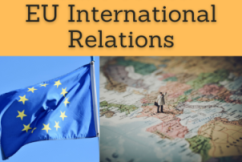

Greek Preferential Access and Trade Agreements:
- Greece and the European Economic Area / Orthodox Economic Area
- The EU
- As a member of the EU, Greece is a beneficiary of the EU Trade Agreements
- European Single Market
- The EU Services Directive
- European Digital Single Market
- Economic and Monetary Union
- European Customs Union
- Adriatic-Ionian Initiative
- Black Sea Economic Cooperation
- Regional Cooperation Council
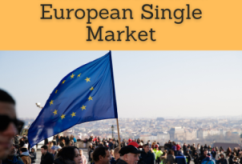

- WTO
- GATS
- Agreement on Sanitary and Phytosanitary Measures
- Agreement on Technical Barriers to Trade
- Agreement on Preshipment Inspection
- Agreement on Safeguards
- Trade Facilitation Agreement
- WCO
- Convention on the Harmonization of Frontier Controls of Goods
- Rotterdam Rules
- CMR Convention
- COTIF Convention
- BIC
- Chicago Convention (ICAO)
- IMO
- Convention for Safe Containers
- Istanbul Convention
- International Road Transport Union (IRU) Customs Convention on Containers - not a member
- ICC
- ICS
- CIM / CIT Rules
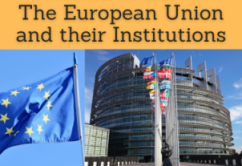
European Trade and Economic Organizations of Greece
- The EU
- OSCE
- UNECE

- UN
- OECD
- OECD anti-corruption measures
- WB
- WTO
- IMF
- Asia-Europe Meeting
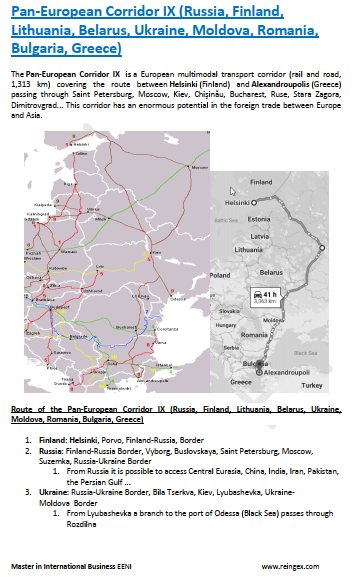
The Hellenic Republic (Europe).
- Capital of Greece: Athens
- Other important cities: Thessaloniki, Piraeus, Patras, Heraklion and Lárisa
- Official Language of Greece: Greek
- Area of Greece: 131,957 km²
- Greek Population: 11 million people
- Type of Government: Parliamentary Republic
- Borders of Greece: Albania, Macedonia, Bulgaria and Turkey
Religion in Greece: Orthodoxy (Christianity)
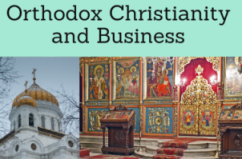
Greece belongs to the Orthodox Economic Area (European Economic Area).
- Greece became independent from the Ottoman Empire (Turkey) in 1830
- Greece, through the Roman empire, was the chrysalis of the Western Civilization
Economy of Greece.
- Greece is an advanced high-income Economy (WB)
- The Hellenic Republic has suffered a deep economic crisis since 2008, although everything seems to indicate that slowly begins to overcome its crisis
- Greece represents the 15th economy of the EU
- Greek GDP (nominal): 238,023 million dollars;
- Services: 85%
- Industry: 12%
- Primary Sector: 3%
- Greek GDP per capita: 21,623 dollars
- Currency of Greece: Euro
- Greece is a member of the EU since 1981
- Greece receives about 15.5 million tourists a year
- The Greek merchant marine is the largest in the world (4.5% of Greek GDP, 15% of the global cargo capacity)
- Other important Greek sectors are industrial production, foods, textiles, chemical products, mining and petroleum
- Headquarters of the European Centre for the Development of Vocational Training (Cedefop): Thessaloniki

Greek Foreign Trade.
- Greece is the main actor in the Balkans, with strong investments in Albania, Bulgaria, Romania and Serbia. Many of these investments are made into the banking sector
- Top Greek exports are petroleum, aluminum, electrical equipment, pharmaceutical products, plastics, vegetables, fruits
- Top Greek exports destinations are Italy, Germany, Turkey, Cyprus, Bulgaria
- The main Greek imports are petroleum, electrical equipment, pharmaceutical products, machinery
- Top suppliers of Greece: Germany, Italy, Iraq, China
- As a member of the EU, Greece is a beneficiary of the EU trade agreements with South Africa, Mexico, MERCOSUR, Chile, Colombia..
(c) EENI Global Business School (1995-2024)
We do not use cookies
Top of this page



